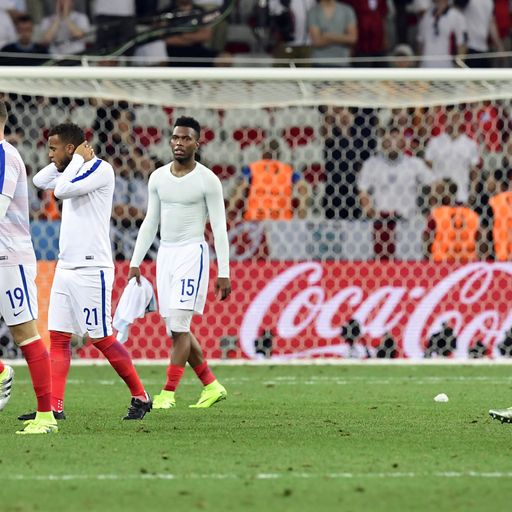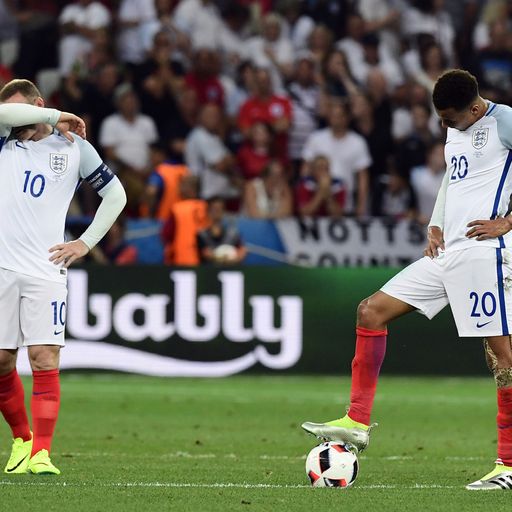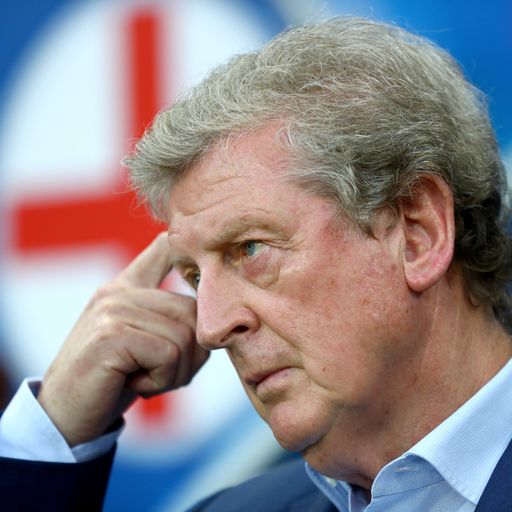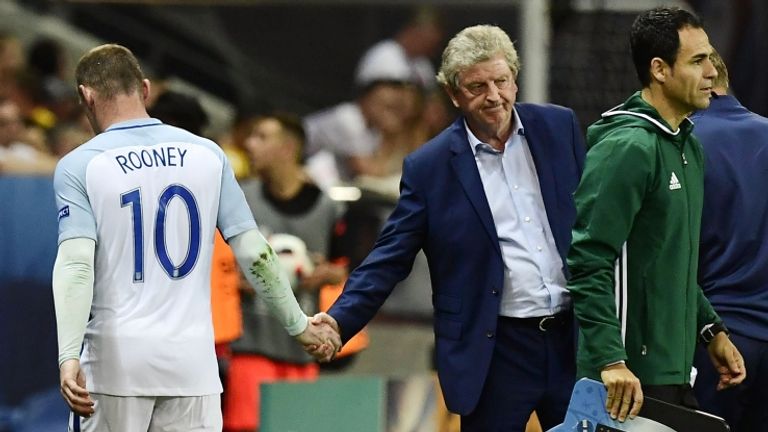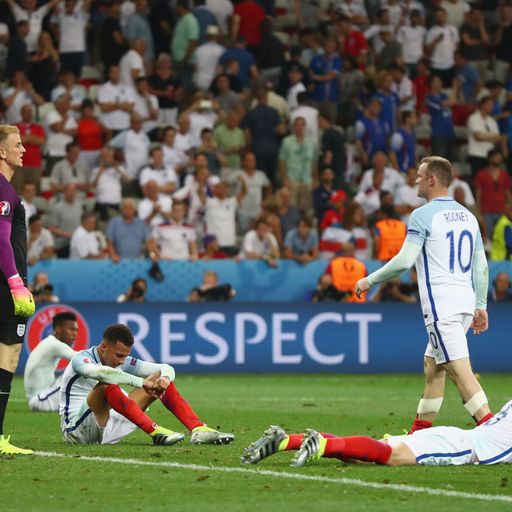Roy Hodgson must take the blame for England’s Euro 2016 failure

Tuesday 28 June 2016 10:15, UK
England are out of Euro 2016 following a 2-1 defeat to Iceland in Nice on Monday evening. Tournament elimination has led to calls for root-and-branch reform in the past but the explanation for this failure is somewhat simpler, argues Adam Bate.
They could call for a winter break. Expect the foreign footballers of the Premier League to be offered up as an explanation. Grass-roots coaching might merit a mention too. But the only coach who deserves to be called out for England's ignominious exit from Euro 2016 was in the dugout in Nice. This failure is surely on Roy Hodgson.
Previous disappointments in this particular competition have highlighted England's technical limitations. There was the defeat to the Dutch in 1988 as well as the eliminations at the hands of Portugal and Italy in more recent tournaments. Even the 2007 qualification loss to Croatia could be interpreted as a consequence of a gulf in quality.
But the sensational knockout-stage defeat to Iceland represents a new twist on the torment. Here was a victory for preparation and planning. A settled side playing with a clarity of purpose proved more than enough to expose England to embarrassment. It's a fresh form of failure and perhaps the country's worst result in over 60 years.
Iceland's players, including the 33-year-old ex-Rotherham defender Kari Arnason, cannot claim to have superior skills. This was not an example of England being outpassed - they had 68 per cent of the possession. Even the familiar excuse of wilting in the summer sun was rendered absurd by the identity of their opponents.
Instead it was organisation that was England's enemy, in particular when conceding the early equaliser from a long throw. Even Hodgson himself might wonder how he ended up with Gary Cahill as a makeshift target-man with no fewer than four forwards - Marcus Rashford, Jamie Vardy, Harry Kane and Daniel Sturridge - attempting to play off him.
While Lars Lagerback named the same starting line-up for the fourth tournament game in a row, Hodgson's side, just as had been the case in England's Euro 2016 opener against Russia, had never once been picked before. How it showed as the team toiled. But why was it ever allowed to come to this?
Here, there are caveats. Hodgson can point to the fact that he did appear to know his best side during a flawless qualifying campaign. Unfortunately, his favoured front six of Jordan Henderson, Jack Wilshere, Fabian Delph, Danny Welbeck, Raheem Sterling and Wayne Rooney were all bereft of either form, fitness or both come tournament time.
Hodgson failed to adapt. The emergence of Kane, Vardy and Rashford as well as Eric Dier and Dele Alli presented a challenge but it should have been a welcome one. This was an opportunity to fashion a new and exciting side; a test of Hodgson's managerial acumen. In truth, he never came close to finding the solutions.
Chances were wasted. England's final friendlies were used to get Wilshere and Henderson back to something approaching full fitness, while Rooney did not feature in midfield until the tournament itself. With the team still struggling for fluency, Hodgson blew the opportunity to find some form against Slovakia by making six changes.
Ultimately, it's difficult to avoid the conclusion that Hodgson could only come up with a woeful fudge that brought the best out of nobody. His determination to retain his skipper was a problem, with Rooney's new role in midfield apparently necessitating a rejig that created difficulties elsewhere.
Dier was left without a natural midfield partner and his Tottenham team-mate Alli was unable to play in the No 10 role in which he'd thrived for his club. Hodgson stuck with the 4-3-3 formation that had got him through qualifying but left out the wing options that might have made it work, instead asking Vardy and Sturridge to play out wide.
The players, of course, must take some responsibility for their inability to cope when it came to the crunch. But a manager's job is to minimise this pressure to perform, ensuring that the decision-making is automatic in the difficult moments. Asking players to play in unfamiliar positions does not help that process.
In that respect, there's some irony in the fact that it was one of the few men asked to perform precisely the same role as he does for his club who erred for Iceland's winner. Joe Hart's mistake, his second of the tournament, stood in sharp juxtaposition to the brilliance of Gianluigi Buffon for Italy earlier in the evening.
And yet, it was still the difference between the two nation's managers that provided the more illuminating contrast. Antonio Conte's Italy were well-drilled. He made his players better. But while Conte is a study in the science of synergy, Hodgson seems to have mastered only the art of throwing names at a tactics board and hoping for the best.
After a second consecutive tournament disappointment, he has paid the price - resigning immediately after the match. It's understandable if there's now an appetite for introspection. But so manifold were the manager's mistakes that things feel different this time. Other issues can take a back seat. This failure is surely on Roy Hodgson.


